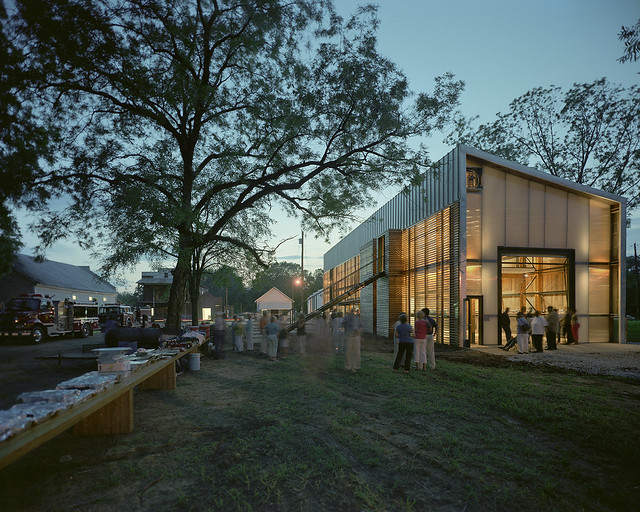Auburn University’s Rural Studio wins prestigious Cooper Hewitt National Design Award
Article body
Auburn University’s Rural Studio—an off-campus design-build program of the College of Architecture, Design and Construction’s School of Architecture, Planning and Landscape Architecture—has been selected to receive the prestigious Cooper Hewitt National Design Award in the Architecture/Interior Design category.
This marks the first time an academic program has ever won a Cooper Hewitt award in that category and is an impactful recognition for the famed program, which gives Auburn architecture students a hands-on educational experience while assisting an under-resourced population in west Alabama’s Black Belt region. Its core mission is the “education of our students, coupled with research on sustainable, healthful rural living through both housing and the vital systems we foster to ensure our communities thrive.”
Cooper Hewitt, Smithsonian Design Museum’s National Design Awards program honors innovation and impact and recognizes the power of design to change the world. Launched in 2000 as an official project of the White House Millennium Council, the awards feature nine categories and seek to increase national awareness of the impact of design through education initiatives.
A multidisciplinary jury of practitioners, educators and leaders from a wide range of design fields select each year’s winners. Innovation and impact are defining criteria for the awards, which seek to increase national awareness of the impact of design through education initiatives.
“We are so proud of the students, faculty and staff at Rural Studio for this well-deserved design award,” said Karen Rogers, CADC acting dean. “For 29 years now, their efforts have produced magical buildings, projects and places that consistently and skillfully integrate beauty, utility and sound construction. Congratulations to all!”
The Architecture/Interior Design category award honors an individual or firm for the design of public, commercial and residential interior and exterior spaces. Past winners in this category include Ross Barney Architects, Brooks + Scarpa, Thomas Mayne and Diller Scofidio + Renfro.
“We are delighted by this recognition because it acknowledges the quality of our design work, and we are humbled to be honored alongside the roll call of extraordinary architects and designers,” Rural Studio Director and Wiatt Professor Andrew Freear said. “I hope this award sends the message that everyone, wherever they live, deserves the benefit of beautiful, dignified, equitable design.”
Freear and other Rural Studio and CADC representatives will travel to New York City for the official award presentation on Sept. 21. The National Design Awards will be celebrated during National Design Week, Oct. 17-23, with visitors to the museum receiving free admission during the special week.
Founded in 1993, Rural Studio has built more than 200 projects and educated more than 1,200 students in the Black Belt. Approximately four dozen students are invited to attend each year to participate in a context-based, service-learning curriculum, where students live and work alongside their neighbors and collaborate to find solutions to problems in the area.
The current focal points of Rural Studio research are innovative practices in home access and affordability, effective and efficient timber use, small-scale farming and access to resources like clean water. To tackle housing access, Rural Studio goes beyond lowering up-front costs for potential homeowners, including design that maximizes energy efficiency, resilience and healthful living, all the while offering dignified design that builds equity.
Related Media
Media interested in this story can contact Communications Director Preston Sparks at (334) 844-9999 or preston.sparks@auburn.edu.
Auburn University is a nationally ranked land grant institution recognized for its commitment to world-class scholarship, interdisciplinary research with an elite, top-tier Carnegie R1 classification, life-changing outreach with Carnegie’s Community Engagement designation and an undergraduate education experience second to none. Auburn is home to more than 30,000 students, and its faculty and research partners collaborate to develop and deliver meaningful scholarship, science and technology-based advancements that meet pressing regional, national and global needs. Auburn’s commitment to active student engagement, professional success and public/private partnership drives a growing reputation for outreach and extension that delivers broad economic, health and societal impact.








